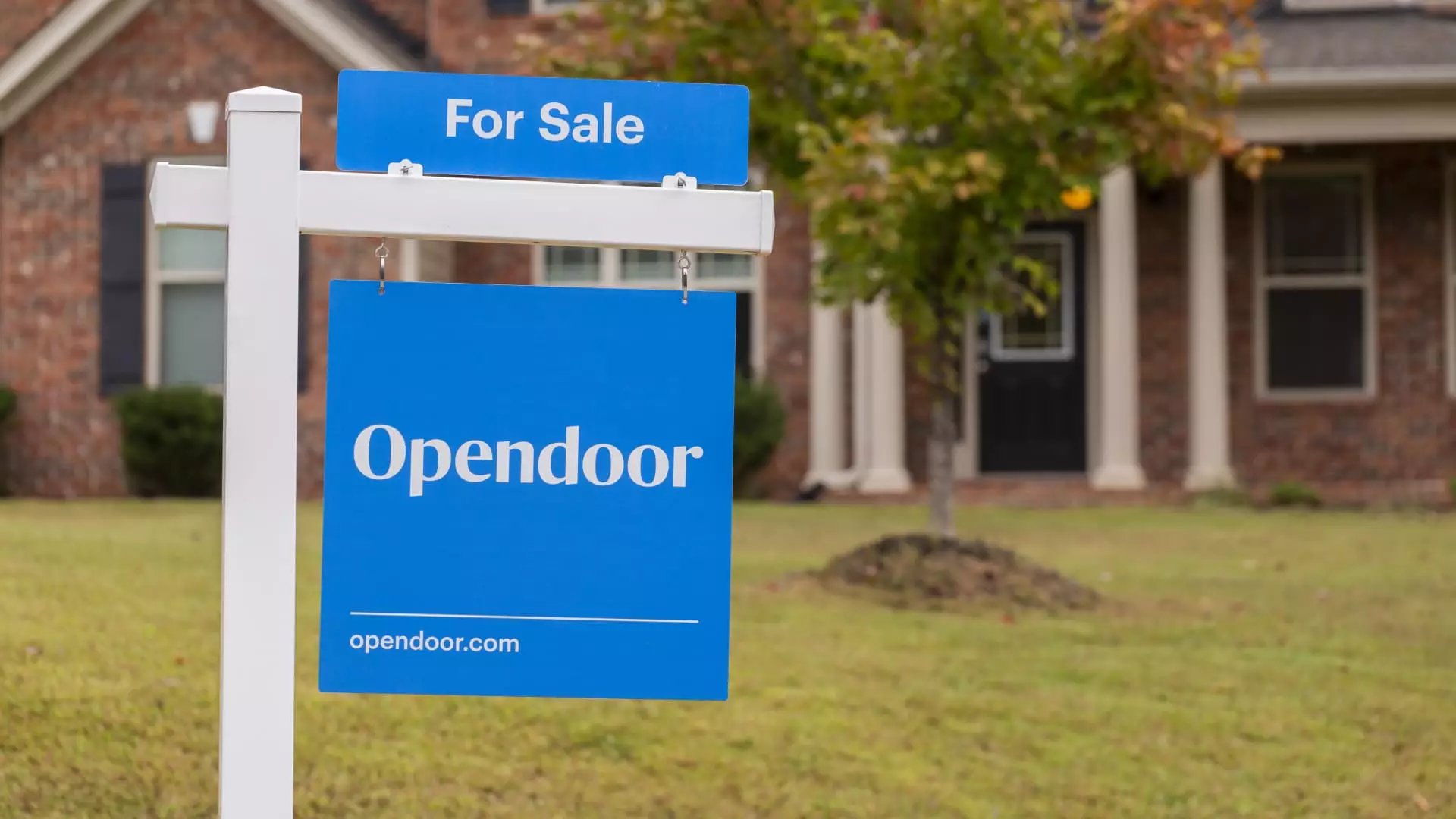Opendoor’s recent stock surge, propelled by the resignation of CEO Carrie Wheeler, highlights a pattern of superficial optimism masking deeper systemic issues within the company. Investors’ fleeting enthusiasm, driven by leadership changes and speculative bets, underscores how fragile the company’s foundation remains. Wheeler’s departure, framed as a strategic move to facilitate fresh leadership, appears more as a reaction to mounting pressure than a turning point towards stability. The notion that a new CEO will automatically rejuvenate a company with mounting losses, declining market share, and a shrinking portfolio oversimplifies the complex realities of the real estate technology sector.
The reality is that Opendoor’s leadership upheaval is symptomatic of a broader crisis of confidence. Wheeler’s exit, while seemingly a positive catalyst, cannot erase the historic miscalculations and reckless expansions that have drained the company’s resources and investor trust. The recent earnings report revealing a drastic decline in property acquisitions from 3,504 in Q4 2023 to merely 1,200 in Q3 starkly illustrates how the company’s ambitions have been reduced to a shadow of their former selves. These numbers underscore the failing business model—one predicated on rapid flipping of homes in a market increasingly hostile to such high-risk strategies.
The Mirage of a Tech-Driven Real Estate Boom
Opendoor epitomizes the hubris typical of many tech companies that entered real estate during a period of artificial market euphoria. Its IPO via SPAC in 2020 was emblematic of the hype—low interest rates and pandemic-driven appetite for innovative markets creating an illusion of limitless growth. Yet, as interest rates climbed and inflation surged, the company’s business model—dependent on cheap borrowing and affordable mortgage rates—began to unravel. The company’s valuation collapsing by 99% from its peak underscores the peril of overreliance on macroeconomic tailwinds and speculative hype.
While hedge fund manager Eric Jackson and other boosters see the company’s potential to “think big again” or even become a “100-bagger,” such projections are more wishful thinking than grounded analysis. The vision of turning Opendoor into a dominant player overlooks fundamental flaws: a shrinking inventory, reduced marketing spend, and diminished profitability. A high-growth tech company facing shrinking market activity and rising borrowing costs cannot simply wave a magic wand to reverse its decline. The market’s correction provides a natural cull, exposing companies that overpromised but underdelivered.
The Broader Reflection on the Real Estate and Tech Interplay
The saga of Opendoor is a cautionary tale about the hubris that accompanies technological disruption in traditional sectors like real estate. Its initial success was founded on a blend of innovation and the illusion of a seamless, hyper-efficient market—an illusion that cracked under macroeconomic strains and internal miscalculations. The company’s focus on buying and selling homes using algorithms and data-driven processes, while appealing on the surface, neglects the fundamental risks inherent in real estate markets: local fluctuations, liquidity constraints, and interest rate volatility.
Despite the optimism among some investors, Opendoor’s trajectory reveals the danger of conflating technological potential with guaranteed success. The short-lived stock rally does little to hide the underlying decline—rational investors should approach such narratives with skepticism. The company’s current leadership vacuum and the ongoing search for a new CEO indicate a company still groping in the dark, trying to salvage its reputation amid declining fundamentals.
The Fragile Promise of Future Growth
Ultimately, Opendoor’s story is woven with false hope and speculative fervor. The company’s attempts to pivot or impress with leadership changes and optimistic projections resemble the optimism of a house built on shifting sands. While some well-meaning investors see a future where Opendoor rebounds spectacularly, the reality is more sobering: a company that overextended during a bullish market and has yet to reckon with the structural damage inflicted.
As long as rising interest rates, declining consumer demand for quick home flips, and shrinking market activity continue to weigh down the sector, Opendoor’s recovery remains uncertain. The recent stock surge may be a brief respite, but it is unlikely to herald a genuine turnaround unless significant strategic reforms, a stable leadership foundation, and sustainable business practices are prioritized. Until then, the company remains a cautionary example of how technological innovation alone cannot shield a business from the brutal realities of market cycles and macroeconomic shifts.

